The Things We Can (and Can’t) Control
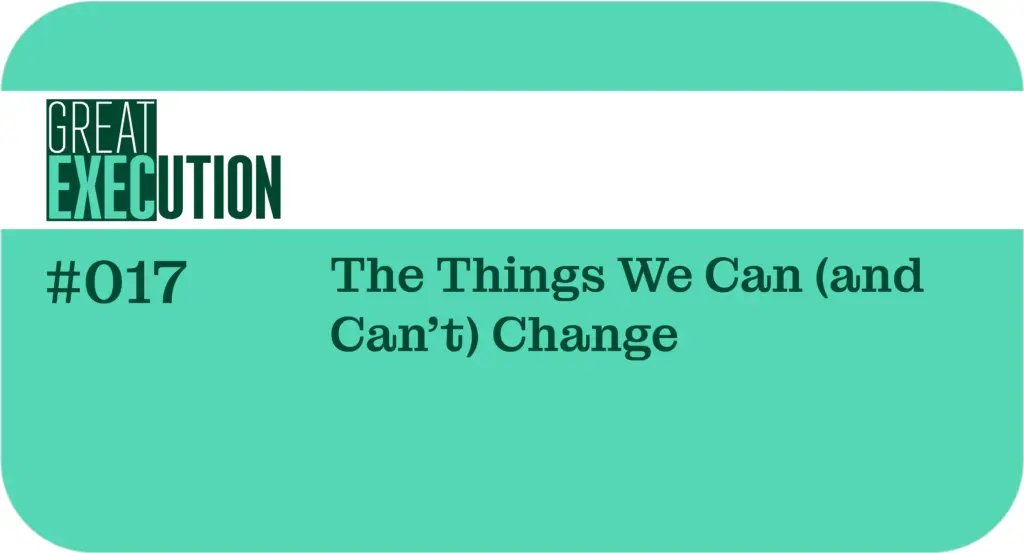
Much of leadership revolves around matters of control. Leaders are in positions where they have an outsized influence on the performance of a company. Our decisions impact large groups of people and can even determine the fate of the company. Yet the reality is that most of the control we exert is indirect in nature.
Falling Behind with Your Goals?

We’re about three weeks into the second quarter. For those who began 2024 with the intention of executing a new strategy or transforming your business, you should, by now, have a pretty good sense as to whether you’re on track. If you are, congratulations—that’s great news! If you’re even mildly behind where you want to be, read on…
Internal Hires and Promotions: Are They Right for the Role?

One of the interesting and enjoyable things about fast-growing businesses is that they present almost limitless opportunities for internal movement, be they promotions or new roles in different functions. These opportunities are appealing to everyone, yet they are not without their challenges.
Tapping into Discretionary Energy

In a recent newsletter, I talked in broad terms about the importance of process for achieving scale. This week, we’re zooming in on the finer details—the “small stuff” that, when neglected, can make your work on process for naught.
Learning to Iron
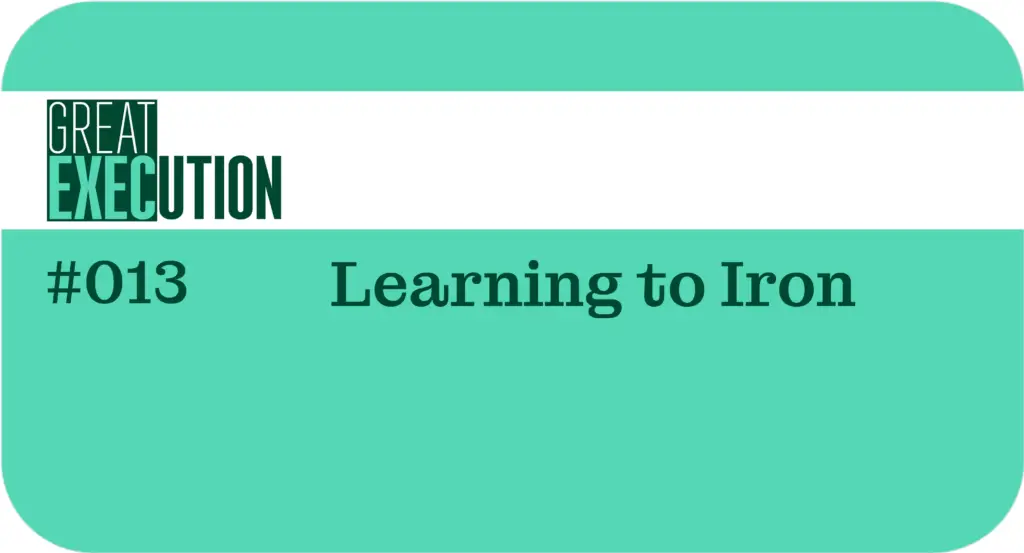
In a recent newsletter, I talked in broad terms about the importance of process for achieving scale. This week, we’re zooming in on the finer details—the “small stuff” that, when neglected, can make your work on process for naught.
The Hardest Thing
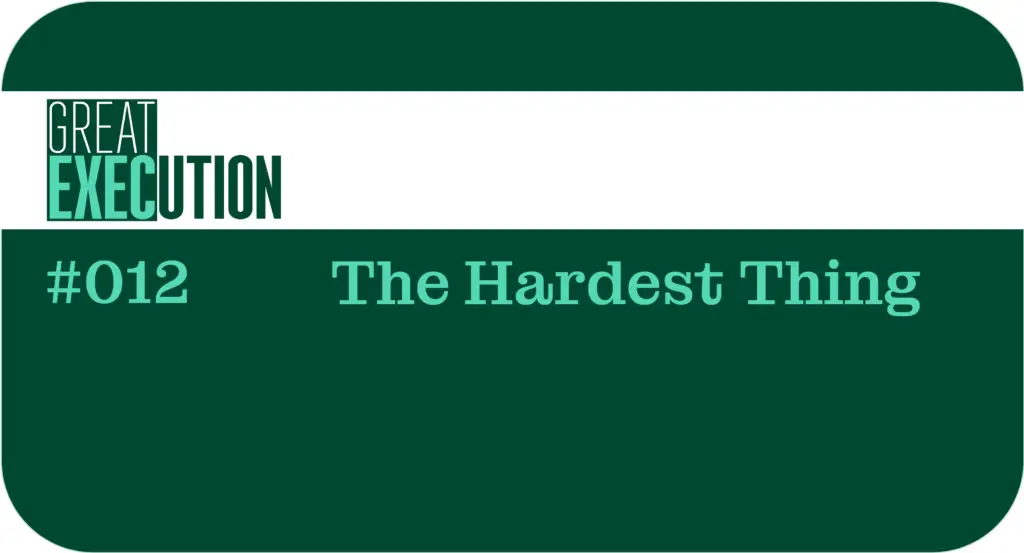
We embrace strong processes not merely for operational efficiency, but as a cornerstone for growth and scalability. They ensure that quality remains high, costs are low, and that the business remains agile and responsive to market changes. Without them, businesses risk stagnation and eroded margins. The challenges—be they flexibility fears, complexity, or change management—are hurdles that, when overcome, unlock significant value. Strong processes, therefore, are not just operational necessities; they are strategic assets that drive competitive advantage and long-term success.
Boiling the Ocean
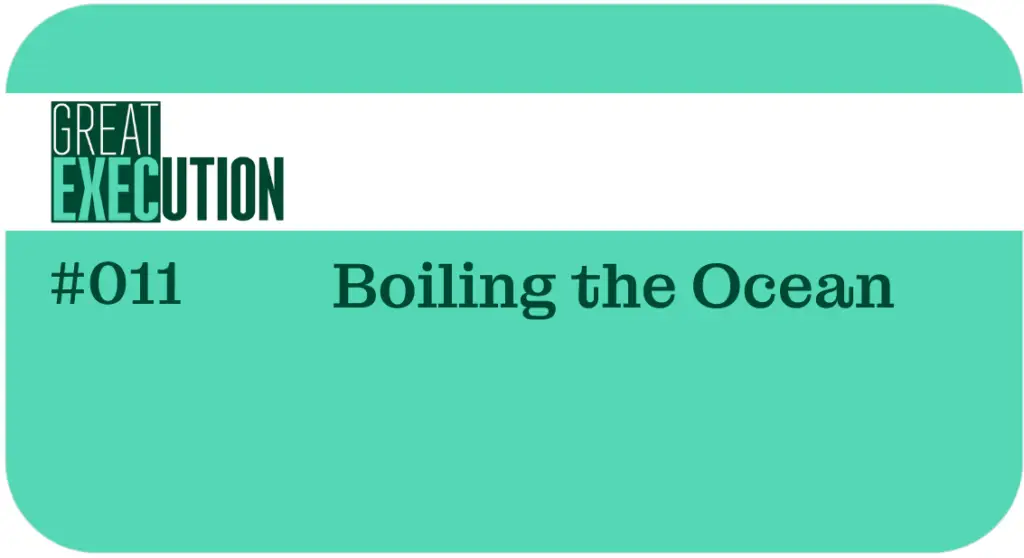
Nearly every business I am working with now is involved in a significant transformation. Several of them are focused on their Go To Market (GTM), with new or revamped products and services that they are hoping will deliver significant value. This work is inherently large in scope, and for that reason has the potential to get bogged down for any number of reasons. This week’s newsletter shares thoughts on how to manage projects of this nature, so we reduce the ocean to a manageable kettle.
The Value of Process for Scale
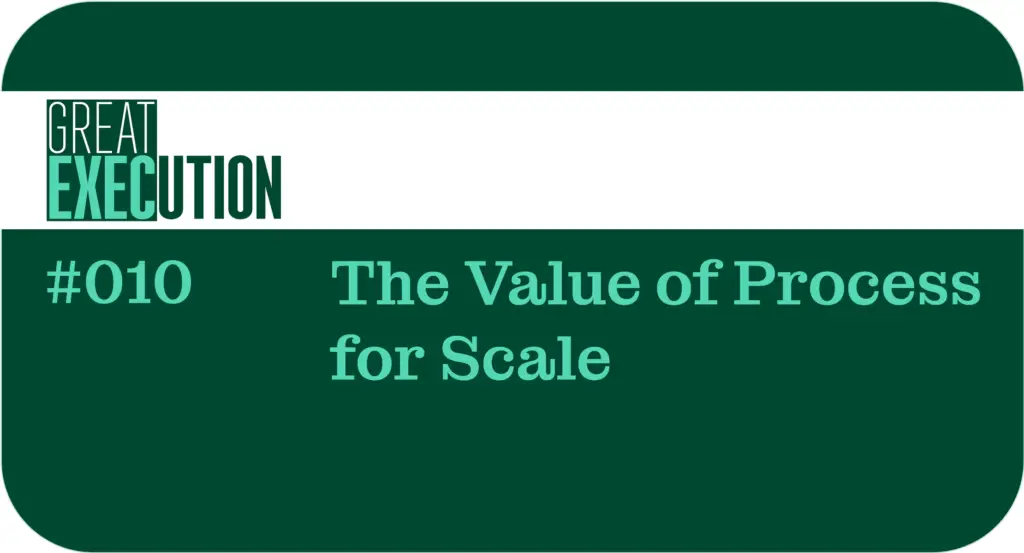
We embrace strong processes not merely for operational efficiency, but as a cornerstone for growth and scalability. They ensure that quality remains high, costs are low, and that the business remains agile and responsive to market changes. Without them, businesses risk stagnation and eroded margins. The challenges—be they flexibility fears, complexity, or change management—are hurdles that, when overcome, unlock significant value. Strong processes, therefore, are not just operational necessities; they are strategic assets that drive competitive advantage and long-term success.
Trusted Deputies
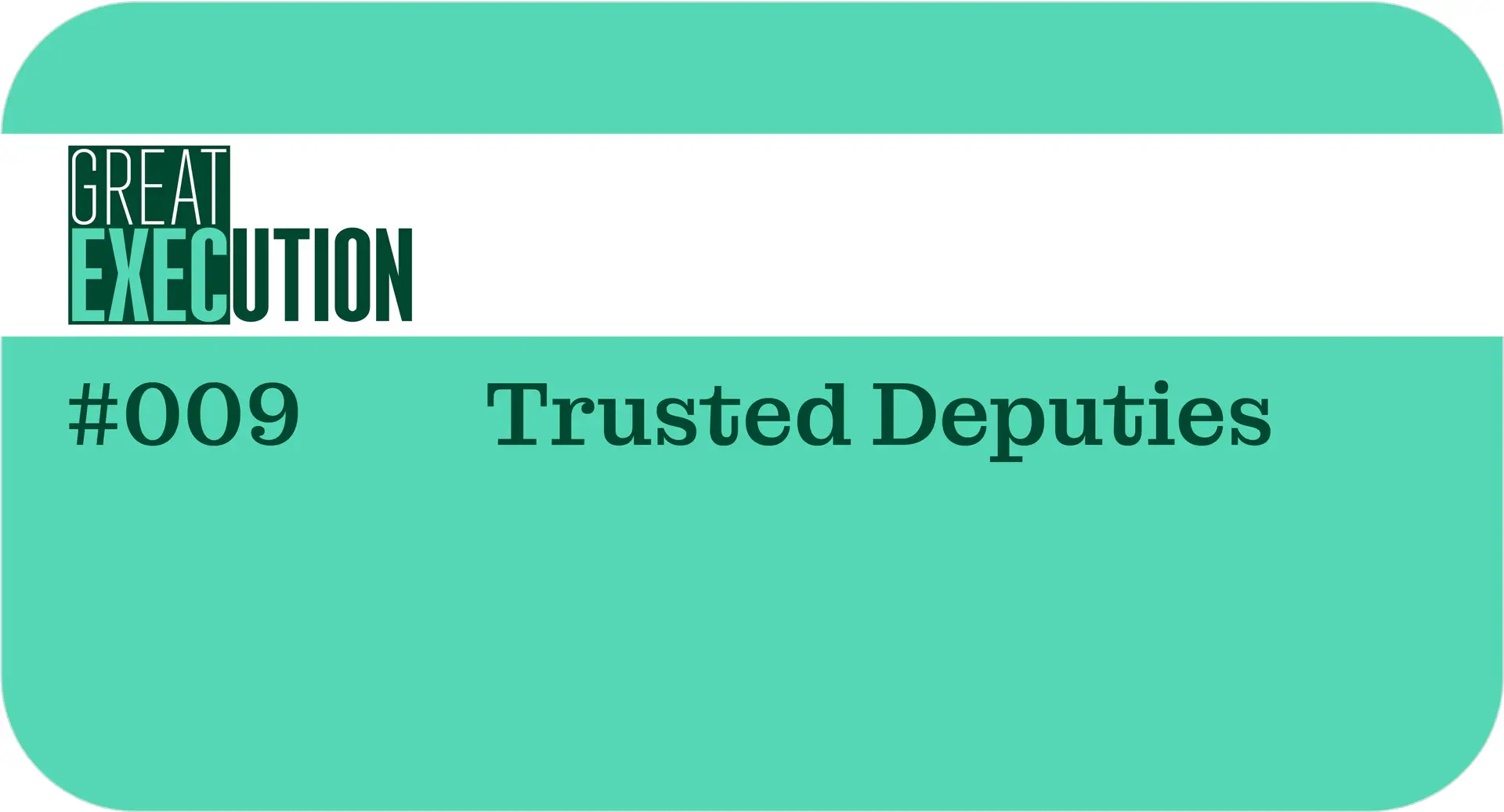
There are two great-yet-entirely-avoidable failings I see in executives. One is not taking time to speak one-to-one with people across the team, especially in the lower part of the organization. The other is that they become so distanced from the “coal face”, the day-to-day work that people do, that they develop a blind spot to this critical element of effectiveness, profitability, and scale. Here’s how to avoid it.
Get in the Weeds

There are two great-yet-entirely-avoidable failings I see in executives. One is not taking time to speak one-to-one with people across the team, especially in the lower part of the organization. The other is that they become so distanced from the “coal face”, the day-to-day work that people do, that they develop a blind spot to this critical element of effectiveness, profitability, and scale. Here’s how to avoid it.